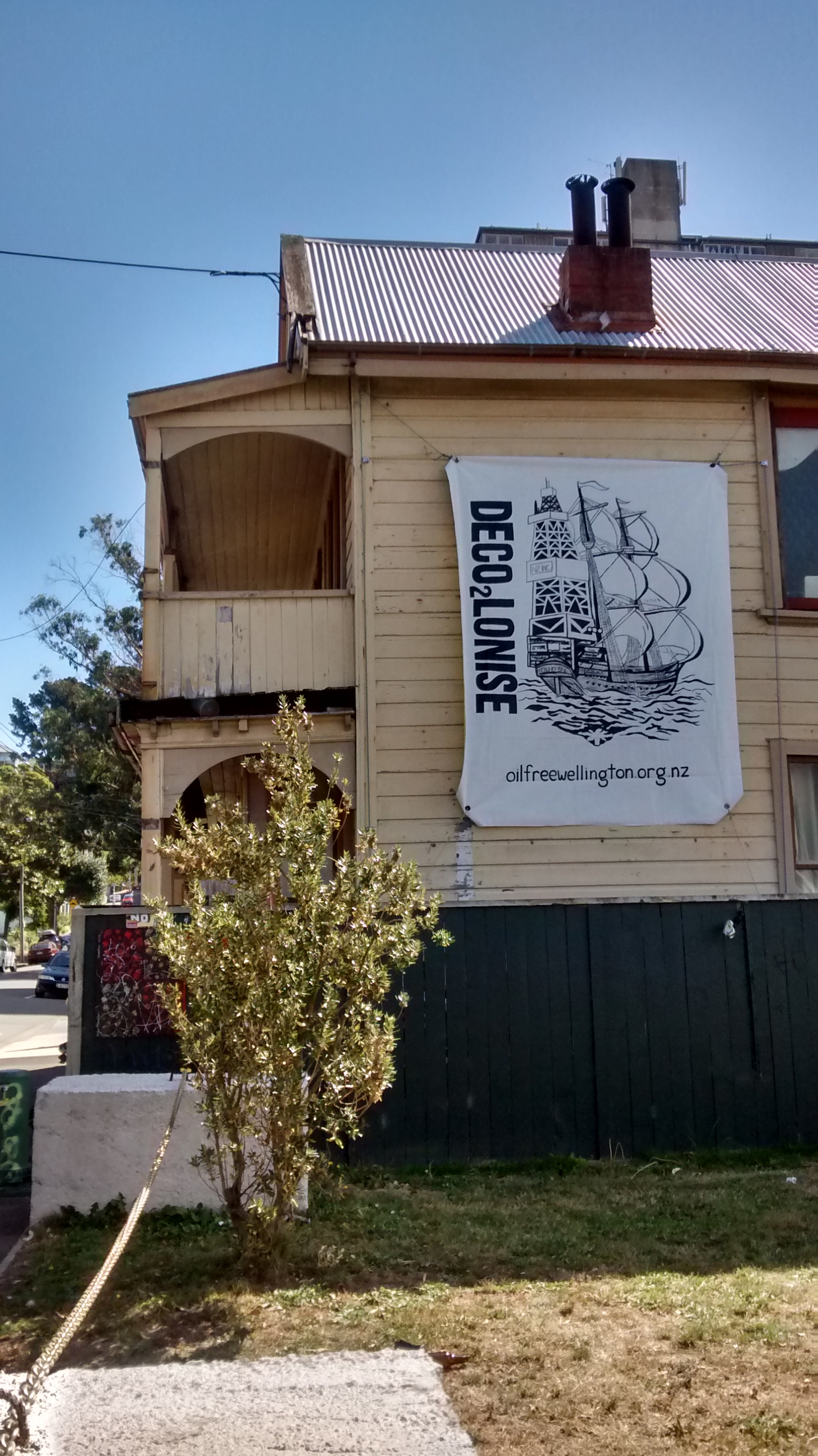DeCO2lonise
Some beginning definitions
Colonisation is an ongoing process of control by which a central system of power dominates the surrounding land and its components (people, animals etc.).
Colonialism is a relationship between an indigenous majority and a minority of foreign invaders. The fundamental decisions affecting the lives of the colonised people are made and implemented by the colonial rulers in pursuit of interests that are often defined in a distant metropolis. Rejecting cultural compromises with the colonised population, the colonisers are convinced of their own superiority and their ordained mandate to rule.
Decolonisation is the undoing of colonisation.
Oil Free Wellington has created the image of an oil rig being brought with a colonial ship. This ties climate change to colonisation. The term CO2lonialism refers to the fact that climate change, fuelled by those with wealth and largely those with wealth in ‘Western’ or colonised countries, but affecting mostly the poor and indigenous, is furthering a system of colonisation which continues today. Whether it is the fact that it will be, first and foremost, the poor and indigenous who lose their homes due to climate change, or the so-called solutions being put forward to climate change which threaten to privatise indigenous land and remove further land rights, such as the REDD+ mechanism; climate change and colonisation are interwoven.
DeCO2lonisation is also about acknowledging that the real and just solutions and grassroots-led community fights and victories have been led by indigenous people around the world. Before NGOs were normalising direct action or beginning to acknowledge the intersectional structural roots of climate change, indigenous peoples were protecting their land with direct action and calling out the racist and capitalist roots of climate change.

A short piece on the connections between climate change and colonisation by a member of Oil Free Wellington
“Still fighting C02olonialism, Your climate profit kills” read the banner at the front of a group of Indigenous protesters at the 2015 COP21 London protest march.
Terms like C02lonisation, C02lonialism, and DeC02olonisation, have been cropping up in the climate change movement for a few years but – what’s it all about?
To me, they can be difficult and even confronting ideas to get my head around. They demand a closer examination of both the root causes of climate change, and the effects of it; or more precisely who is affected by it. They challenge me, as a Pākehā New Zealander to examine the contribution of myself and my ancestors, both negative and positive.
They speak to the intersections, and crossovers of struggles happening the world over; issues of Indigenous land rights, the Black Lives Matter movement, environmental issues and issues of how we frame and talk about climate change.
The high-carbon lifestyle championed by capitalism was, and still is, fuelled by slavery, land grabs, cheap labour and resources gained through colonisation of various forms. Globally we now have deep social and economic inequalities as well as, in some parts of the world, a lifestyle of incredible consumption; incredible consumption causing incredible amounts of C02 emissions.
Indigenous peoples of the Pacific, like colonised peoples of colour throughout the world, are on the front-lines of the climate crisis. They often have effective grassroots ideas, and the most incentive to implement solutions, but the climate change movement has often sidelined these voices in favour of large NGOs or celebrities.
To quote Tisha Brown after her experience of NGOs trying to silence the Indigenous block at the COP21 London Climate March,
“Climate change provides us with the opportunity to build a just and equitable world where everyone is liberated. To achieve this, we need a diversity of tactics and voices. A climate movement that ignores those who are fighting on the front lines or re-creates the systems of oppression that created this mess needs to do some serious soul searching”

